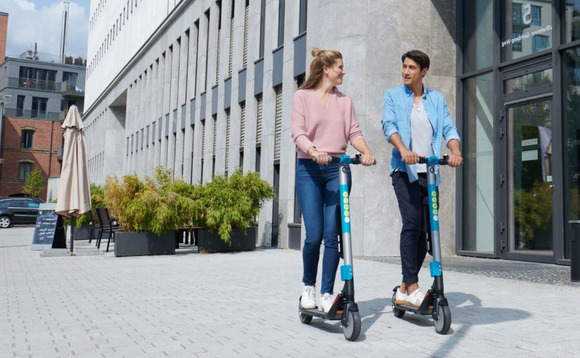
Legalisation of e-scooters gives German startups green light

A recent change in legislation could see Germany further increase its lead in the European e-scooters sector, having already been home to the lion's share of venture capital deals in recent years. Katharine Hidalgo reports
On 18 May 2019, Germany's upper house of parliament legalised the use of electric scooters. Many supporters have heralded the new legislation as the beginning of a sea change for transportation in a market traditionally dominated by cars.
Germany is the last of 11 European countries to legalise e-scooters, even though it has seen the largest number of e-scooter startup funding rounds in Europe, with 10 deals. France and Sweden have seen the second highest volume with four deals each, according to Unquote Data.
Germany-based Flash, which recently held one of Europe's larger seed rounds, develops and distributes electric scooters. "Increasingly, people are seeking better offerings in short distance travel. E-scooters are just the start of a next-generation last-mile transportation – being a part of this process right from the beginning is what attracted us to Flash," a spokesperson for Signals VC, an investor in the company, told Unquote. The company raised €55m in January 2019, with participation from Target Global and Idinvest Partners.
This uptake in early-stage activity comes in spite of a generally slow-moving regulatory function. Founding partner Christian Meermann of Cherry Ventures, which has made a number of investments in mobility, says German regulation is lagging, not just on e-scooters but also on the digital health space and in consumer privacy. "The political infrastructure can slow things down for a startup, so every founder needs to understand the regulatory environment and adapt accordingly. Developing a solid regulatory strategy will actually help entrepreneurs succeed, especially when internationalising the business and moving into new markets."
Other countries that have recently legalised e-scooters include Austria, Spain and Belgium, though the restrictions on use differ from country to country. Germany's legislation allows users older than 14 to drive scooters on roads and bicycle paths at less than 20 kilometres per hour. Helmets are not compulsory.

Taking Europe by storm
Following these changes in the regulatory landscape, startups in the European micro-mobility market now abound. Sweden-based VOI Technology has raised almost £65m in less than a year from investors such as Balderton Capital and Project A Ventures. In October 2018, Northzone Ventures, SpeedInvest and Point Nine Capital invested €27m in Berlin-headquartered Tier Mobility. Dott, Wind Mobility, Cityscoot, Movo and Unu are some of the other e-scooter rental startups attracting ever-increasing investments in Europe.
Deal value is still dwarfed by funding rounds in the US, where Lime, a competitor to VOI and Tier, raised $310m in its series-D in February 2019. GIC, Bain Capital Ventures and European investors GR Capital and St Augustine Partners participated in the transaction, which valued the company at $2.4bn.
Micro-mobility deal volume in EMEA has already increased from four deals in 2017 to 13 in 2018 against only 11 deals in the Americas in the same year, according to Unquote sister publication Mergermarket. With changing legislation across Europe, as well as continued growth in deal volume and maturation in the market, deal value in Europe may also grow to match US records in the future.
That said, investors should not expect a completely smooth ride when backing this budding technology. Resistance to legalisation has mainly been driven by two concerns: safety and logistics. So far, e-scooter-related accidents and deaths have occurred in Barcelona, Vienna and Paris, and German cyclist association ADFC has stated publicly that cycle paths are already teeming without the introduction of e-scooters. Critics also complain of piles of scooters blocking pedestrians in cities such as Paris and Brussels, where e-scooter startups have taken advantage of recent legalisation. With Germany seeing the lion's share of VC activity in the sector recently, the country could become a good proving ground to assess how these new businesses and their backers can successfully rise to the challenge.
Latest News
Stonehage Fleming raises USD 130m for largest fund to date, eyes 2024 programme
Multi-family office has seen strong appetite, with investor base growing since 2016 to more than 90 family offices, Meiping Yap told Unquote
Permira to take Ergomed private for GBP 703m
Sponsor deploys Permira VIII to ride new wave of take-privates; Blackstone commits GBP 200m in financing for UK-based CRO
Partners Group to release IMs for Civica sale in mid-September
Sponsor acquired the public software group in July 2017 via the same-year vintage Partners Group Global Value 2017
Change of mind: Sponsors take to de-listing their own assets
EQT and Cinven seen as bellweather for funds to reassess options for listed assets trading underwater








